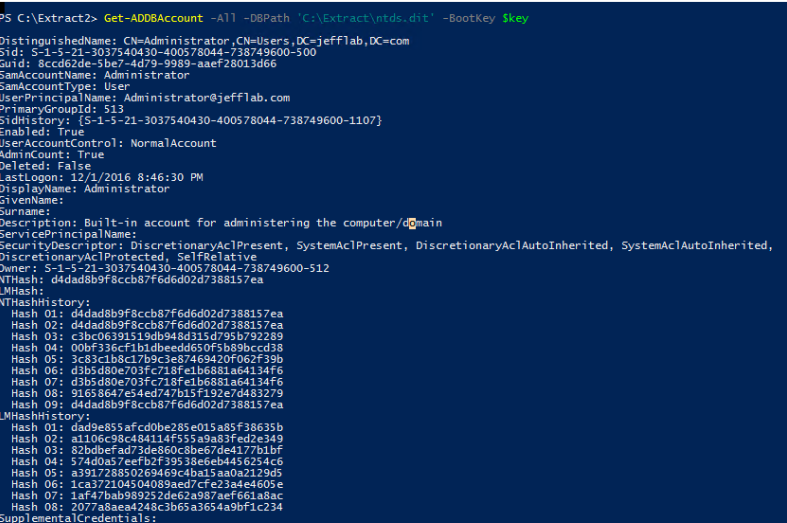Read A Webpage And Extract String In File Powershell

- Read A Webpage And Extract String In File Powershell Download
- Powershell Select-string Regex
- Powershell Select-string Exact Match

The Substring method provides us a way to extract a particular string from the original string based on a starting position and length. If only one argument is provided, it is taken to be the starting position, and the remainder of the string is outputted. PS 'teststring'.Substring(0,4)TestPS 'teststring'.Substring(4)stringPS But this is easier. $s = 'Hello World is in here Hello World!' $p = 'Hello World'$s -match $pAnd finally, to recurse through a directory selecting only the.txt files and searching for occurrence of 'Hello World': dir -rec -filter.txt Select-String 'Hello World'. Building on Matt's answer, here's one that searches across newlines and is easy to modify for your own use $String='-start-`nHello World`n-end-'$SearchStart='-start-`n' #Will not be included in results$SearchEnd='`n-end-' #Will not be included in results$String -match '(?s)$SearchStart(?.)$SearchEnd'$result=$matches'content'$result-NOTE: if you want to run this against a file keep in mind Get-Content returns an array not a single string.
Read A Webpage And Extract String In File Powershell Download
You can work around this by doing the following: $String=string::join('`n', (Get-Content $Filename)).
Example: In May 2016 it has to read Apr 2016 and on Jan 2016 it will be Dec 2015. Now we need to read only based on Year Month extension YYYYMM. The file name will be test201602.txt file. We need to verify 201602. Nov 5, 2018 - Free eBooks are available on this site; Read the full help file on any cmdlet. There are lots of free PowerShell eBooks on Microsoft's websites.
March 11th, 2015Summary: Microsoft Scripting Guy, Ed Wilson, talks about using Windows PowerShell to extract zipped files.Hey, Scripting Guy! I need to be able to work with zipped files from time-to-time. Often I store files in a zip archive so they are portable. I know how to copy the.zip archive from one place to another with Windows PowerShell, but I cannot seem to figure out how to unzip the archive.
A quest line known as Trouble in the Ancient Forest sends Geralt on a hunt to kill Leshen using the witcher’s silver sword and spells known as signs.Completing that quest will earn players the following:Witcher-themed special items, resources for crafting Geralt’s armor and weapon set, a unique nekker skin and weapon for your Palico companion, as well as new gestures, titles, pose, and guild card backgroundOn Feb. Players can now role-play as Geralt of Rivia as part of Capcom and CD Projekt Red’s collaboration event based on.The first part of the crossover is available right now to Monster Hunter: World players who have reached Hunter Rank 16. 15, another Witcher-themed event will be available to Monster Hunter: World players who have reached Hunter Rank 50.  The Woodland Spirit multiplayer event will send Geralt and friends after a more powerful beast, the Ancient Leshen.
The Woodland Spirit multiplayer event will send Geralt and friends after a more powerful beast, the Ancient Leshen.
Powershell Select-string Regex
Can you help me? I would be ever so grateful.—SKHello SK,Microsoft Scripting Guy, Ed Wilson, is here. This morning I got out my bag of espresso beans and set up my rotary bean grinder. I am thinking I will make some espresso this afternoonor maybe tomorrow afternoon. I have an old-fashioned, stovetop, double-boiler.
It is like one I bought a long time ago when I was in Naples, Italy. It is ridiculously simple, and does an excellent job. I put the water in the bottom and super finely ground beans in the middle, and after a short time, the espresso appears in the top. The only trick is ensuring that I get the right amount of water in the bottom.I sometimes also make cappuccinos on Saturday mornings, and I have a hand milk frothier that I use for that. I love using manual tools when I have time, or when I want to take time for an exceptional occurrence.
Powershell Select-string Exact Match
However, for things that occur more than once or twice a month, I want to automate them—big time. Maybe one day, someone will invent a PowerShell powered teapot.To extract all files from a.zip archive file, I use the ExtractToDirectory static method from the io.compression.zipfile.NET Framework class. To use this class, I need to add the System.IO.Compression.FileSystem assembly to my Windows PowerShell console or to the Windows PowerShell ISE.To add the assembly, I use the Add-Type cmdlet and specify the –Assembly parameter. This command is shown here:Add-Type -assembly “system.io.compression.filesystem”The command to extract the zipped files to a folder is:io.compression.zipfile::ExtractToDirectory($BackUpPath, $destination)Here are a few things to keep in mind:. The first parameter I call ($ BackUpPath) must point to a specific zipped file. The second parameter (the one I call $destination) must point to a folder.
Both of these parameters are strings. Therefore, I cannot use a ziparchive object or a directoryinfo object as input types. The extraction does not include the root folder.My complete script is shown here:$BackUpPath = “C:backupfso.zip”$Destination = “C:recovered”Add-Type -assembly “system.io.compression.filesystem”io.compression.zipfile::ExtractToDirectory($BackUpPath, $destination)When I go to my C:recovered folder, I see that all of the files from the fso.zip folder are now present.SK, that is all there is to using Windows PowerShell to extract zipped files. Zip Week will continue tomorrow when I will talk about zipping and emailing an archived folder.I invite you to follow me on. If you have any questions, send email to me at, or post your questions on the. See you tomorrow.
Until then, peace.Ed Wilson, Microsoft Scripting Guy.